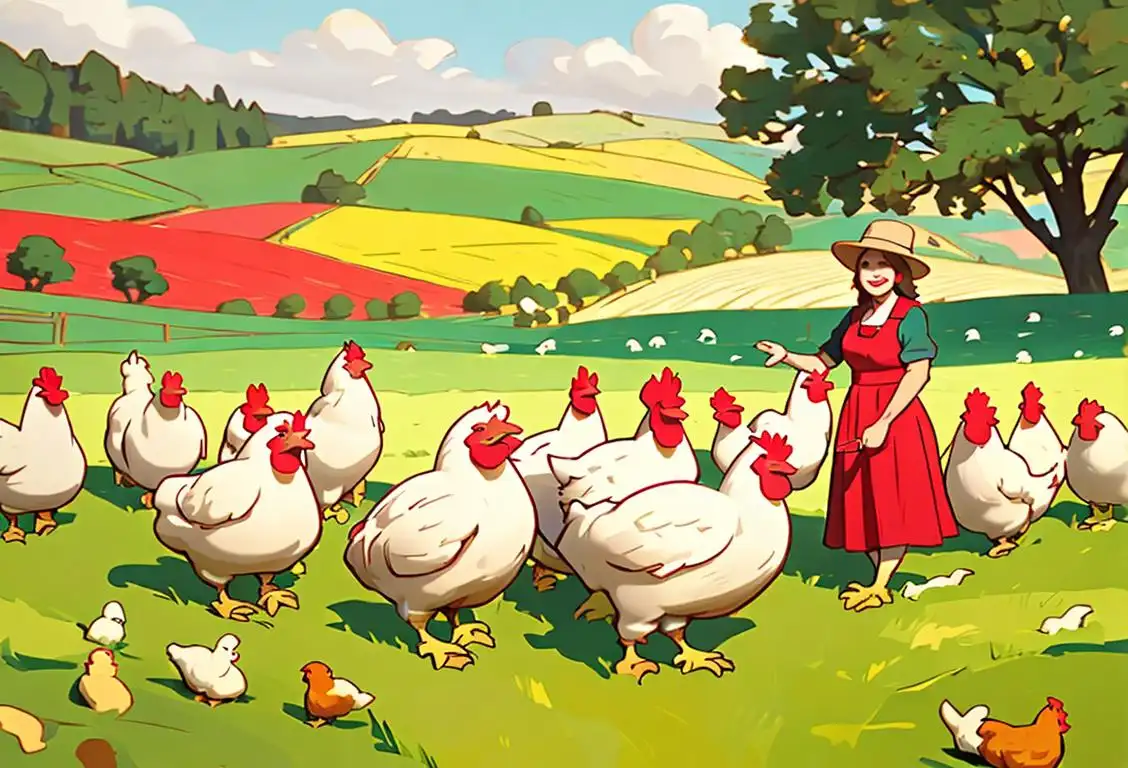National Fruit Of The Vine Day

Welcome to the wonderful world of National Fruit of the Vine Day! Grab your wine glasses and get ready to celebrate the delicious nectar of the gods. Whether you're a connoisseur or simply enjoy a glass every now and then, this day is all about honoring the bountiful vineyards that provide us with one of life's greatest pleasures.
When is Fruit Of The Vine Day?
It's national fruit of the vine day on the 25th May.
The Internet History of National Fruit of the Vine Day
Let's dive into the rich history of National Fruit of the Vine Day and uncover some juicy online tidbits. Our digital detective work reveals that this delightful day has garnered 51 mentions online over the years. The peak of online buzz occurred on May 25, 2017, when wine enthusiasts everywhere were clinking glasses to commemorate this hallowed day.
But why limit celebration to just one day a year? Wine has been enjoyed for centuries, and its origins date back even further. The art of winemaking stretches across cultures and continents, from the rolling vineyards of France to the lush valleys of California.
Fast forward to the age of the internet, and wine enthusiasts have found a vibrant online community to share their passion. From witty wine memes to expert reviews, there's no shortage of online content to peruse while sipping on your favorite varietal.
Did You Know?
Did you know that National Fruit of the Vine Day isn't just about wine? It also celebrates other delightful products of the vine, such as grape juice and raisins! So, whether you're savoring a glass of Bordeaux or snacking on a bunch of grapes, you're keeping the spirit of this day alive.
History behind the term 'Fruit Of The Vine'
1500 BCE
Ancient Origins
The term 'fruit of the vine' can trace its roots back to around 1500 BCE in ancient Mesopotamia. This term refers to the agricultural practice of cultivating and harvesting grapes for winemaking. Grapes were considered a sacred fruit and were highly esteemed for their use in wine production, which had both religious and cultural significance.
First Century CE
Biblical References
In the New Testament of the Bible, specifically in the Gospels of Matthew, Mark, and Luke, the phrase 'fruit of the vine' is mentioned in the context of the Last Supper. During this Biblical event, Jesus is said to have used these words while blessing the wine before sharing it with his disciples. This association further enhanced the symbolic connotation of 'fruit of the vine' as a representation of wine and its spiritual significance.
Middle Ages
Medieval Wine Culture
During the Middle Ages, wine production and consumption played a crucial role in European society. Monasteries and vineyard owners contributed significantly to the cultivation of vineyards and the development of winemaking techniques. The term 'fruit of the vine' became popularized as a poetic expression referring to wine itself, symbolizing not only the literal fruit from the vine but also the traditions, craftsmanship, and cultural heritage associated with winemaking.
19th Century
Expansion to the Americas
The term 'fruit of the vine' continued to evolve, spreading across the Atlantic as wine production expanded to the Americas. European settlers brought viticulture practices to regions such as California, establishing vineyards and wineries. With this expansion, 'fruit of the vine' became synonymous with the growing wine industry in the New World, symbolizing the connection between nature, agriculture, and the production of wine.
Present Day
Ongoing Cultural Significance
Today, the term 'fruit of the vine' remains a poetic and evocative phrase used to describe wine. It encompasses not only the physical grape, but also the rich history, traditions, and craftsmanship associated with winemaking. Wine continues to hold a significant place in various cultural, religious, and social contexts around the world, making the term 'fruit of the vine' a timeless representation of the enduring allure and heritage of wine.
Did you know?
Did you know that National Fruit of the Vine Day isn't just about wine? It also celebrates other delightful products of the vine, such as grape juice and raisins!Tagged
nsfw food funFirst identified
25th May 2017Most mentioned on
25th May 2017Total mentions
51Other days
Chocolate Mousse Day
Something On A Stick Day
Children Day
Awareness Day
Frappe Day
Taco And Vodka Day
Happiness Day
Opposite Day
One Day
Poultry Day









